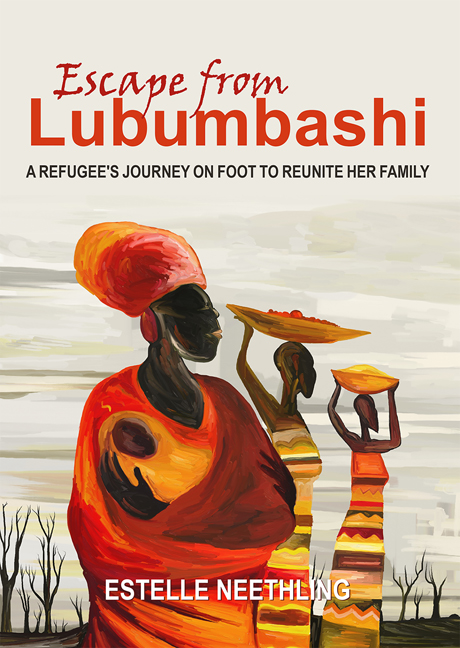17 - A stout, but heavy heart
Summary
In June of 2012, during a particularly cold and wet, often stormy, Cape winter, Adolphine became sick for many weeks on end. She found herself in a downward spiral, physically and emotionally. “I was going to work, but it took enormous effort. The doctor I visited thought I was developing ulcers. He asked me whether I drank beer and I told him I’ve never used alcohol in my life. After doing a gastrointestinal endoscopy he prescribed medication and told me to see him every month.”
Thinking back, she felt everything that had been happening in her life for the past years had “caught up” with her and manifested itself in a kind of nameless malaise of body and spirit. In particular, the outcome of the presidential elections in the DRC in 2011 had upset and disappointed her profoundly. Many Congolese in the diaspora had been hoping fervently – and voting pointed in that direction – that Joseph Kabila's main opponent, Étienne Tshisekedi, would prevail. The elections were only the second since Congo's last civil war ended in 2003, and the first that the country had organised unilaterally. Political turmoil and a great deal of controversy surrounded the elections. The UK Telegraph reported in December 2011 that ”… at least four people died as police fired on Mr Tshisekedi's supporters as they demonstrated against what they said were rigged elections on Saturday.” It also reported that Jimmy Carter – in the words of the former US president's Carter Center – “found the provisional presidential election results announced by the Independent National Election Commission … to lack credibility”.
Adolphine had never stopped yearning for the time when there would be peace in the country of her birth so that she could return to her homeland with her family. But the alarming events surrounding the elections brought the harsh reality to her: a meaningful democracy in the DRC wasn't yet to be.
“I had been ‘keeping it’ – living with all these things – and although I told myself, I am free, it was still heavy and hard inside me. I almost quit my job with the CWD.” She came to feel she could no longer deal with the emotional demands of her work with people in crisis: the grinding poverty, the hardship of people trying to survive despite immense trauma and pitiful circumstances.
- Type
- Chapter
- Information
- Escape from LubumbashiA Refugee's Journey on Foot to Reunite her Family, pp. 99 - 104Publisher: University of South AfricaPrint publication year: 2021



